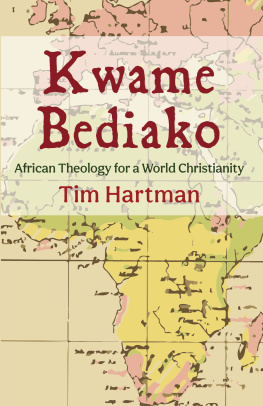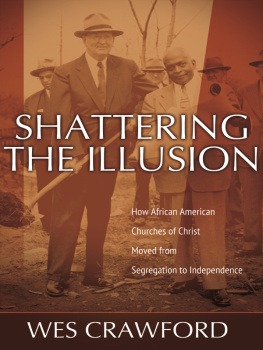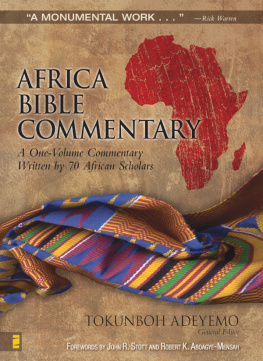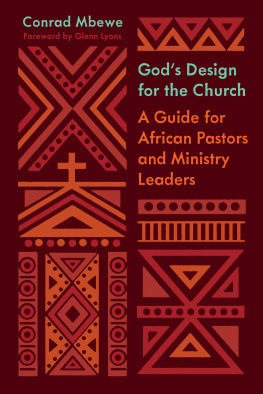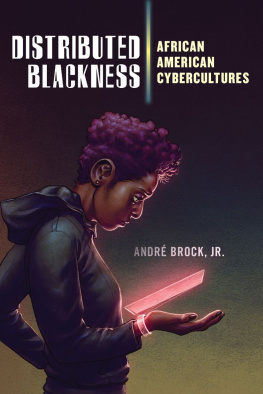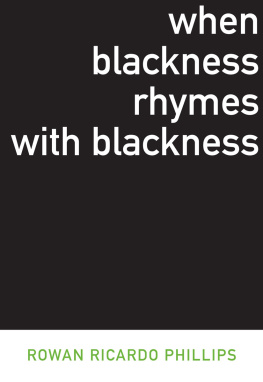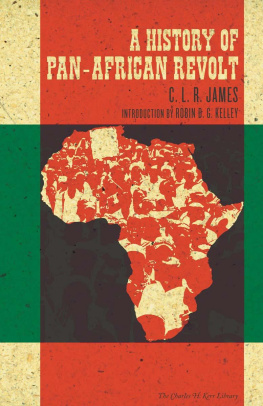
Kimbanguism
VINCENT WIMBUSH, GENERAL EDITOR
EDITORIAL BOARD:
William E. Deal (Case Western Reserve University)
Grey Gundaker (William & Mary)
Tazim Kassam (Syracuse University)
Wesley Kort (Duke University)
Laurie Patton (Duke University)
R. S. Sugirtharajah (University of Birmingham, UK)
Signifying (on) Scriptures, a project of the Institute for Signifying Scriptures at the Claremont Graduate University, invites and challenges scholars from different fields and disciplines to engage the phenomenon of signifying in relationship to scriptures. The focus of these works is not upon the content meaning of texts but upon the textures, signs, material products, practices, orientations, politics, and power issues associated with the sociocultural phenomenon of the invention and engagement of scriptures. The defining interest is how peoples, especially the historically dominated, make texts signify as vectors for understanding, establishing, and communicating their identities, agency, and power in the world.
OTHER BOOKS IN THE SERIES:
Velma Love, Divining the Self: A Study in Yoruba Myth and Human Consciousness
Jennifer Reid, Finding Kluskap: A Journey into Mikmaw Myth
Isra Yazicioglu, Understanding the Quranic Miracle Stories in the Modern Age
Leif E. Vaage, Borderline Exegesis
Kimbanguism
An African Understanding of the Bible
Aurlien Mokoko Gampiot
Translated by Ccile Coquet-Mokoko
The Pennsylvania State University Press
University Park, Pennsylvania
Library of Congress Cataloging-in-Publication Data
Names: Mokoko Gampiot, Aurlien, author. | Coquet-Mokoko, Ccile, translator.
Title: Kimbanguism : an African understanding of the Bible / Aurlien Mokoko Gampiot ; Translated by Ccile Coquet-Mokoko.
Other titles: Signifying (on) Scriptures.
Description: University Park, Pennsylvania : The Pennsylvania State University Press, [2017] | Series: Signifying (on) Scriptures | Includes bibliographical references and index.
Summary: A comprehensive study of Kimbanguism, founded by Simon Kimbangu in 1921. Compares it to other African-initiated churches, and examines its role, alongside other global religious movements, in Black liberationProvided by publisher.
Identifiers: LCCN 2016046613 | ISBN 9780271077550 (cloth : alk. paper)
Subjects: LCSH: Eglise de Jsus-Christ sur la terre par le prophte Simon Kimbangu. | Kimbangu, Simon, 18871951. | Nativistic movementsCongo (Democratic Republic) | BibleBlack interpretations. | ChristianityAfrica.
Classification: LCC BX7435.E44 M635 2017 | DDC 289.9/3dc23
LC record available at https://lccn.loc.gov/2016046613
Copyright 2017
The Pennsylvania State University
All rights reserved
Printed in the United States of America
Published by
The Pennsylvania State University Press,
University Park, PA 16802-1003
The Pennsylvania State University Press
is a member of the
Association of American University Presses.
It is the policy of The Pennsylvania State University Press to
use acid-free paper. Publications on uncoated stock satisfy
the minimum requirements of American National Standard
for Information SciencesPermanence of Paper for
Printed Library Material, ansi z39.481992.
CONTENTS
Part I:
General Background
Part II:
Kimbanguism and the Bible
Part III:
Expressions of Kimbanguist Messianism
Unless otherwise noted, all photographs appear courtesy of PRESKI (Presse Kimbanguiste).
Maps
.
Figures
This book would never have been published without the help and input of Professor Vincent Wimbush, who not only suggested a new approach for my research, but also welcomed me into his Institute for Signifying Scriptures and gave my work a home in the Signifying (on) Scriptures series at Penn State University Press. I am immensely grateful and indebted to him. I am also deeply appreciative of the help, suggestions, and understanding of Kathryn Yahner, acquisitions editor, and Hannah Hebert, editorial assistant, at Penn State University Press, who accompanied me through the editing process with as much kindness as professionalism.
I have been encouraged by the interest of colleagues who invited me to present and discuss my research in their departments: Professor Thee Smith of Emory University, Professor Maha Marouan of the University of Alabama, Emerita Professor Rosa Bobia of Kennesaw University, and Professors Marla Brettschneider, Carol Conaway, Penny Moreau, Courtney Marshall, and Faina Bukher of the University of New Hampshire. Your support has been greatly appreciated.
I am also indebted to Professors Michael Gomez of New York University, Drew Smith of Pittsburgh Theological Seminary, John Jackson of the University of Pennsylvania, Edith Bruder of SOAS, Zekeh Gbotokuma of Morgan State University, Clment Akassi of Howard University, Pamela Gay-White of Alabama State University, David Garbin of Kent University, and Metka Zupancic and Emeritus Professor Michael Mendle of the University of Alabama. Each of you has been a steadfast friend, and your support has always been highly valued.
By introducing me to sociology and supervising my research at the University of Rennes 2, Emeritus Professor Pierre-Jean Simon has been a crucial influence and a real mentor. My fellow researchers at the Groupe socit, religions, lacit of the French national research center (CNRS) hosted by the University of Paris, Sorbonne, are also deserving of thanks for their interest in my work and their encouragement. I am especially grateful to Professors Philippe Portier, Jean Paul Willaime, Jean Baubrot, Sbastien Fath, Jolle Allouche-Benayoun, and Martine Cohen.
Emeritus professor Georges Balandier expressed interest in my work and encouraged me to publish it in the United States; I was very honored when he offered to write a preface for this book, but health issues unfortunately made this impossible. Professor Elikia MBokolo helped by inviting me to speak on his radio program, Mmoire dun Continent, on Radio France Internationale, thus making my work more visible, and by organizing a historic international conference in Kinshasa called Simon Kimbangu, the Man, His Work, and His Contribution to the Liberation of Black People, which successfully connected the work of scholars with that of the members of the Kimbanguist Church.
I am also extremely grateful to the leaders of the Kimbanguist Church, particularly the spiritual leader Simon Kimbangu Kiangani for his support and encouragement, and Maestro Armand Diangienda Wabasolele for his interest, the interview he gave me, and his invariable helpfulness. I am indebted to King Kipula Nsimba Wise for his help with information and pictures of the Kimbanguist Symphonic Orchestra; to Gabriel Nzau Ngoma Wagaza, who generously shared archival material and images he took as the churchs official photographer with PRESKI until 2001; and to the many interviewees, especially the late David Wabeladio Payi and Vronique Kabeya, as well as the other inspired people and church members who answered my questions with honesty and confidence. Jrme Makiadi, Enock Mban, Sylvain Mbote Munzila, Adrien Fwakasumbu Luwawanu, and Joseph Shiashia honored me with an invitation to be a guest of the first Kimbanguist Book Fair in the greater Paris area. My longtime friends Saturnin Ngoma, Gody Dia Kongo, Fortun Mboussa, Darius Azika-Eros, David Biangu, and Erick Siassia have been helpful and supportive. May all the Kimbanguist community find here the expression of my heartfelt appreciation.


